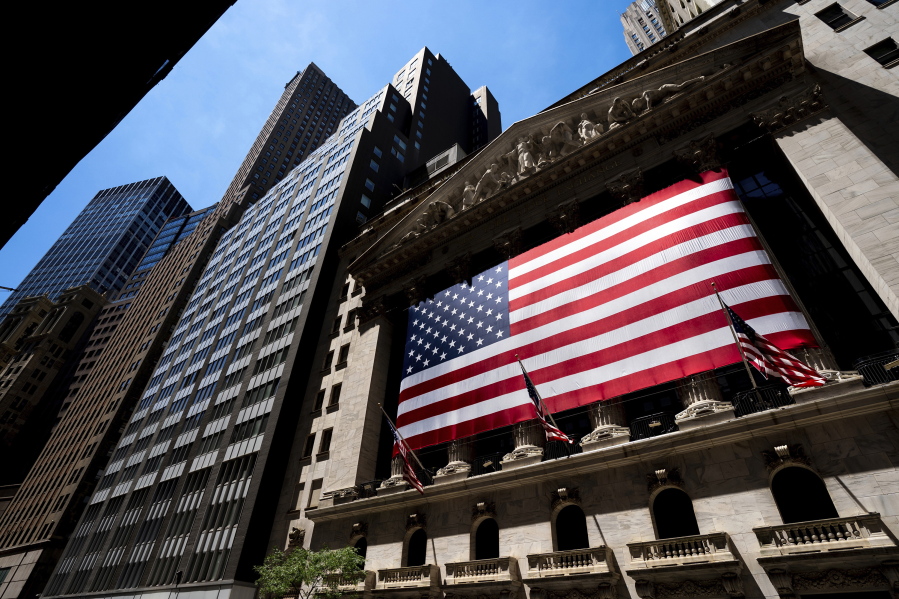NEW YORK (AP) — Stocks are drifting on Wall Street Friday after a report showed inflation is slowing, though not quite as much as hoped.
The S&P 500 was 0.2% lower in morning trading after earlier shifting between very small gains and losses. The Dow Jones Industrial Average was down 86 points, or 0.3%, at 33,695, as of 10:19 a.m. Eastern time, and the Nasdaq composite was 0.2% lower.
Stocks around the world had earlier weakened after a U.S. government report showed prices getting paid at the wholesale level were 7.4% higher in November than a year earlier. That’s a slowdown from October’s rate of 8.1%, but it was nevertheless slightly worse than economists expected.
The nation’s high inflation, along with the Federal Reserve’s economy-crunching response to it, have been the main reasons for Wall Street’s painful tumble this year. Stocks have recovered some of their losses recently, as inflation has slowed since hitting a peak in the summer. But it remains painfully high, raising the risk that the Federal Reserve will have to keep hiking interest rates sharply to get it fully under control.
Treasury yields erased earlier losses immediately after the release of the report. That reflected traders stepping up bets for how high the Fed will ultimately take interest rates. The central bank has already hiked its key overnight rate to a range of 3.75% to 4%, up from basically zero as recently as March.
Its next decision on rates is scheduled for next week, and the general expectation is for it to raise rates by another half of a percentage point.
That would be a step down from the four straight hikes of 0.75 percentage points the Fed has just pushed through. Even with such a dial down, though, the Fed has said it may still take rates higher than markets expect before taking a pause.
Higher rates hurt the economy by making it more expensive for companies and households to borrow money, which forces them to cut back on spending. If rates go too high, it can cause a recession. They also drag down on prices for stocks and all kinds of other investments.
A separate report on Friday showed U.S. households are paring expectations a bit for inflation in the future. That’s key for the Fed, which says it wants to prevent a vicious cycle where households rush to make purchases on fears prices will rise further. Such buying activity only fans inflation higher.
Households are forecasting inflation of 4.6% in the year ahead, according to the survey by the University of Michigan. That’s the lowest such reading in 15 months, though still well above where it was two years ago. Expectations for longer-run inflation remain stuck in the 2.9% to 3.1% range where they’ve been for 16 of the last 17 months, at 3%.
Overall sentiment among consumers was also stronger than economists expected, according to the University of Michigan’s preliminary reading. That’s good news for the economy, which gets most of its strength from spending by such consumers. But it can also complicate the Fed’s task. If such spending remains resilient, it could keep up the pressure on inflation.
“The two most important questions for next year are how fast inflation will drop and how much will it need to drop for the Fed to stop tightening,” foreign-exchange strategists wrote in a BofA Global Research report. “We are concerned markets too optimistic on both.”
The yield on the two-year Treasury, which tends to track expectations for Fed action, rose to 4.34% from 4.26% just before Friday’s inflation report was released. It was at 4.31% late Thursday.
The yield on the 10-year Treasury, which helps dictate rates for mortgages and other important kinds of loans, rose to 3.54% from 3.49% late Thursday.
In overseas stock markets, European indexes gave up some of their earlier gains following the U.S. inflation report.
Chinese benchmarks rose Friday on reports the government is planning new measures to support the ailing property sector, which has been a severe drag on growth over the past several years.
The relaxation of some of China’s “zero-COVID” rules is also raising hopes the economy will gain momentum, though experts say it will take months for tourism and other business to recover from the disruptions of the pandemic. It historically has been a major source of the global economy’s growth.



